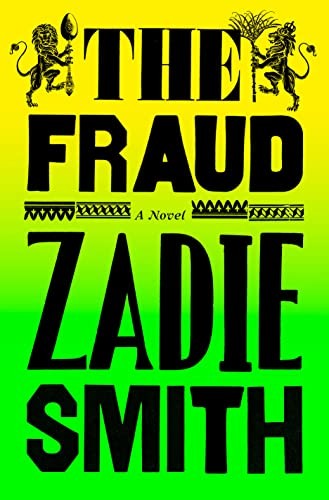plutonian reviewed Fraud: A Novel by Zadie Smith
"A person is a bottomless thing."
4 stars
This book may just as well have been written with me as the specific target audience. A short list of things I adore:
-- 19th century literature -- 19th century London -- books that include Dickens as a character (and portray him as an asshole) -- complicated bisexual heroines (lock up your husband AND your wife, Eliza is coming for them both)
Smith took a rather obscure historical event and a person who was previously not much more than a name scrawled in a famous book and breathed tremendous life into all of it. Reading this was just as rich and rewarding as reading anything by my beloved Victorians. (Although certainly more rewarding anything by Ainsworth, judging by the short passages Smith quotes in the book. It does not surprise me that dear William has largely been forgotten and is no longer in print at all.)
I adored Eliza. She's …
This book may just as well have been written with me as the specific target audience. A short list of things I adore:
-- 19th century literature -- 19th century London -- books that include Dickens as a character (and portray him as an asshole) -- complicated bisexual heroines (lock up your husband AND your wife, Eliza is coming for them both)
Smith took a rather obscure historical event and a person who was previously not much more than a name scrawled in a famous book and breathed tremendous life into all of it. Reading this was just as rich and rewarding as reading anything by my beloved Victorians. (Although certainly more rewarding anything by Ainsworth, judging by the short passages Smith quotes in the book. It does not surprise me that dear William has largely been forgotten and is no longer in print at all.)
I adored Eliza. She's lonely and independent, both yearning for freedom and terrified of it. She feels everything very deeply and lets almost none of it show to others. Her empathy leads her to the abolition movement and eventually towards her attempt at friendship with Mr. Bogle. They're both people who would be side characters at best in a Dickens novel: the caustic spinster and the noble, tragic man who escaped slavery. But here they are full people, with complicated histories and motivations.
Smith is a joy to read and I loved how this novel skipped through time and place to provide an expansive view of this era and its people. I think I could read this novel many more times and get something new out of it every time. Who gets to be seen as "authentic," who gets to decide the truth? And who gets to tell their own story?


